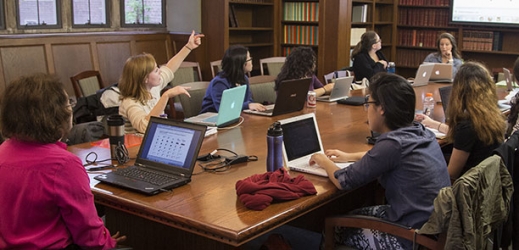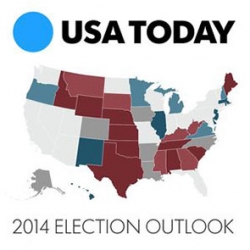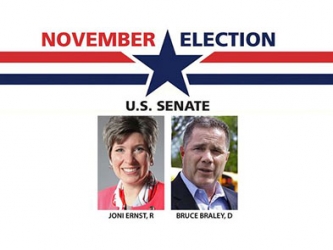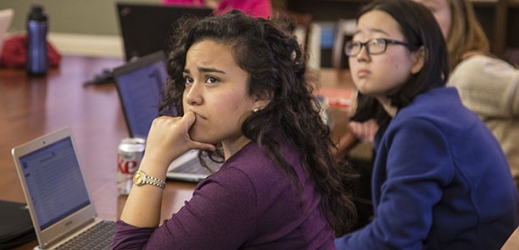Mid-term election season is a perfect time to dig into the political science of campaign and elections.
POL1 319: Calderwood Seminars in Public Writing: Campaigns and Elections
“I am fascinated by the study of elections because they are consequential and never the same twice,” says Professor of Political Science Marion Just. She shares that fascination in a new course, one of the Calderwood Seminars on Public Writing, that uses the 2014 midterm elections as its laboratory to investigate why campaigns are important and what elections mean for democratic governance in the United States.
Each student has chosen a tight race to follow and write about to better understand the impact of party nominations, campaign funding, news coverage, political advertising, public opinion polling, and the growing role of the Internet and social media in campaigns.
In a structure similar to other Calderwood seminars, students alternate between being the reporter/writer and being the editor of a piece. In addition to pieces they are assigned to, all students read all of the others’ work, and they report that both receiving and giving peer reviews is hugely helpful to improving their writing—and their understanding of the topic.
As student Francie Hofmann ’15 says, “I’ve learned a lot from reading my classmates’ blog posts, which often present scholarly articles and recent studies in an impressively concise and engaging way.”
Throughout the seminar students apply various journalism styles including reporting about campaign events, candidates, and relevant political science research; blogging; and commentary. “As you may know,” says Just, “the world of opinionated journalism—op-eds, columns, blogs, television talk shows, and punditry on political topics—is dominated by male voices. I want to help more women to find and project their voices into the public.”
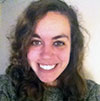 “Professor Just has great insights into how campaigns work… and teaches you about how political advertisements and polls are designed so you don't take them at face value, and then are able to write a compelling article about them.”
“Professor Just has great insights into how campaigns work… and teaches you about how political advertisements and polls are designed so you don't take them at face value, and then are able to write a compelling article about them.”
—Dylan McGarvey ’16

